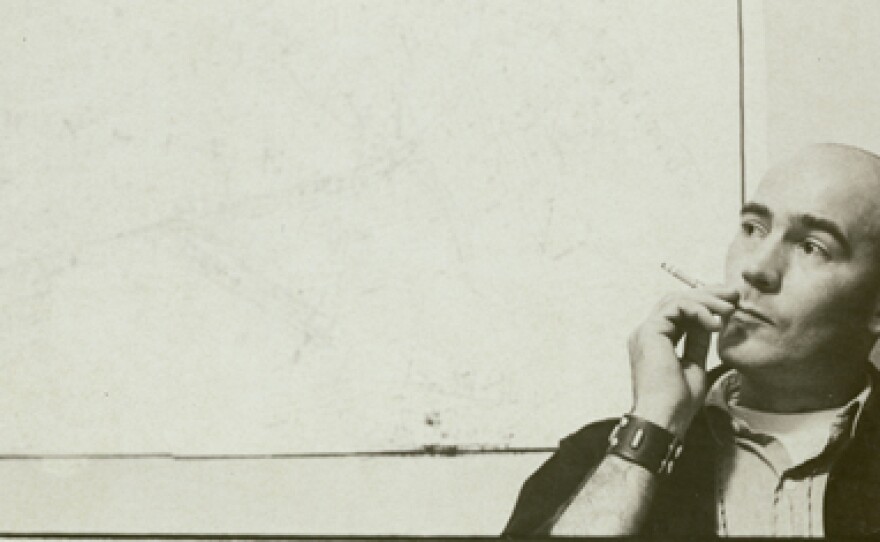Thompson is credited with what has become known as gonzo journalism in which the reporter involves himself in the story that he's covering to such a degree that he becomes a part of it. Thompson was also infamous for his use of drugs, alcohol, and guns. Gibney's documentary tries to place Thompson in a historical context. Gibney wants to serve up a portrait of a man who was a product of his times, reacting to the political and social climate in which he was living. But Gibney chooses to begin the film with 9/11 and with Johnny Depp (who played Thompson's alter ego in the film Fear and Loathing in Las Vegas) reading what Thompson wrote about the event. Thompson's accurately assesses that the Bush Administration will make sure that they punish somebody but that this war will have no frontlines. He concludes with a quote from Winston Churchill who said, "the first casualty of war is truth."
Gibney then presents Thompson as a man on a twisted road to finding the truth by whatever means necessary and then sometimes filtering that truth is odd ways. Gibney assembles some interesting people to comment on Thompson's life from author Tom Wolfe to former president Jimmy Carter to conservative Pat Buchanan, and all express differing degrees of admiration for Thompson's particular style of journalism.
Thompson's wives offer some insight into his personal life and allude to the fact that he had two sides to his personality, one that they loved and the other that could be scary. Gibney tries to explore both sides but ends up providing only casual insights into the man's darker nature. He does provide some insights into what might have informed his particular take on the world. We are told that as a teen he was arrested with a group of rich kids and while they all had the money and connections to get out, he didn't. That time in jail, Gibney suggests, was a turning point. Thompson is described as loving F. Scott Fitzgerald's The Great Gatsby but rather than looking in the windows of the rich as Fitzgerald did, Thompson wanted to smash those windows in. Thompson's writing would frequently be like a stone thrown through those elegant windows and meant to jolt the establishment with a distinctly alternative point of view.
Thompson's first wife calls him a patriot and Gibney tries to place Thompson's writing within a political context of the times he was living in. Thompson reveals that he was inspired by men like Robert Kennedy and by an early speech Carter delivered to lawyers and judges and serving up criticism of the judicial system. Depp returns to the film intermittently to read excerpts from Thompson's writings, many of which sound amazingly pertinent to today's current events. But while some of Thompson's writing proves savage and insightful, Gibney also suggests that his celebrity started to get in the way of him being a reporter and that he had become something of a hostage to the persona he had created. Gibney shows us how cartoonist Gary Trudeau depicted that persona in his comic strip Doonesbury and how artist Ralph Steadman chronicled Thompson in his evocatively scrawled caricatures.

Hunter S. Thompson (Magnolia Pictures)
Gonzo: The Life and Work of Dr. Hunter. S. Thompson (rated R for drug and sexual content, language and some nudity) doesn't give a defining portrait of Thompson, and maybe that's impossible to do especially without Thompson being around to answer questions himself (the interviews with Thompson are from archive footage only). But the film does provide some insights into the man and remind us of what his writing at its best could be. Although it alludes to Thompson's darker shadings, it doesn't dwell on them or explore them in much depth. This is a mostly complimentary portrait that ends with a sense of respect for what Thompson achieved and a sense of loss that he took his own life at 67 in February of 2005. But he seems to have exited this world in exactly the way he wanted and he is even on record describing exactly how he would end his life and how his funeral should be arranged.
Companion viewing: Fear and Loathing in Las Vegas, Breakfast with Hunter, Where the Buffalo Roam
&






